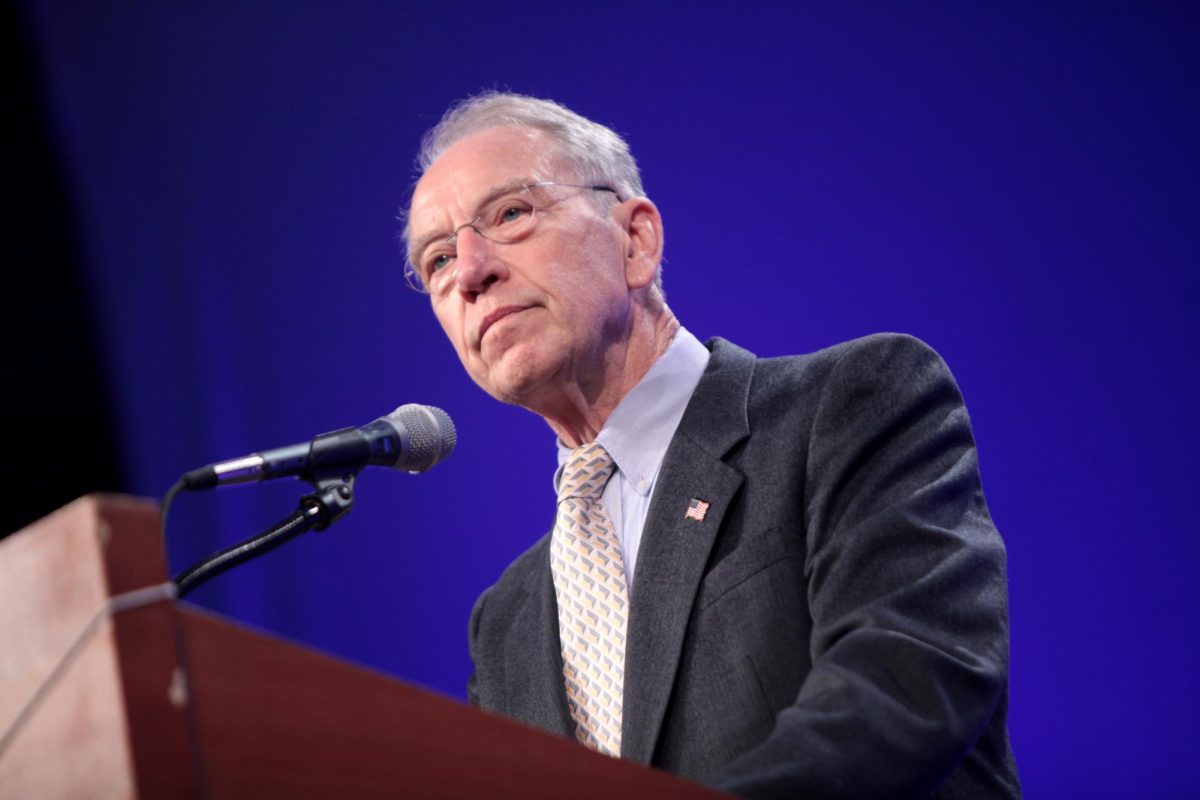WASHINGTON D.C.-Special prosecutor Robert Mueller indicted former Trump campaign manager Paul Manafort and his deputy Rick Gates on October 30th, both of whom surrendered to F.B.I. custody hours later.
Both Manafort and Gates, who served as Manafort’s deputy during the elections, were then placed under House Arrest. The accusations include conspiracy, money laundering, and acting as unregistered foreign agents.
The indictment charges are the first leveled as a result of special prosecutor Mueller’s investigation into Russian interference in the 2016 presidential election. Deputy Attorney General Rosenstein appointed Mueller as special prosecutor in order to investigate “any links and/or coordination between the Russian government and individuals associated with the campaign of President Donald Trump,” according to a Department of Justice (DoJ) letter.
The investigation had seemingly stalled for several months, with no apparent progress or criminal charges leveled. However, the investigation and the widespread allegations of Russian involvement during the election convinced many of President Trump’s critics that there was more than met the eye. Following the indictment, few were shocked.
“There’s been so much stuff in the media about corruption and involvement with Russia, it’s not really surprising now,” Park Fabian, a freshman, remarked. “I hope they get him.”
Manafort’s previous position as Trump’s campaign manager and Mueller’s appointed purpose to investigate Russian interference in the elections may seem to implicate the president’s administration.
“I didn’t know who Manafort was until a few weeks ago when the news started reporting a lot about him,” senior Aaron Mills said. “I guess it’s another nail in the coffin.”
A frequent critic of both Mueller and his investigation, President Trump passionately ridiculed the charges.
On the same day the indictment was issued, Trump posted two tweets disparaging the charges, claiming that there was “NO COLLUSION” and asking “Why aren’t Crooked Hillary & the Dems the focus?????”
The indictment specifically accuses Manafort of 12 charges: one count of conspiracy against the United States, one count of conspiracy to launder money, seven counts of failure to file foreign bank and financial account reports, one count of acting as an unregistered foreign agent, one count of making false and misleading statements regarding the Foreign Agents Registration Act, and one count of writing false statements to the Department of Justice.
According to the indictment, Manafort and Gates took millions of dollars from the pro-Russian government of Ukraine between 2011 and 2014 in return for political lobbying in the United States. Acting without government registration, Manafort and Gates allegedly laundered this money in a series of companies and banks to evade detection by the Department of Justice (DoJ). When the DoJ and the Department of the Treasury grew suspicious, they filed false and misleading financial and Federal Bank Report, or FBAR, statements to throw them off the scent.
“Between at least 2006 and 2015, MANAFORT and GATES acted as unregistered agents of the Government of Ukraine, the Party of Regions (a Ukrainian political party whose leader Victor Yanukovych was President from 2010 to 2014), Yanukovych, and the Opposition Bloc (a successor to the Party of Regions that formed in 2014 when Yanukovych fled to Russia),” the first paragraph of the indictment text says.
Accusing Manafort and Gates of being “unregistered” alludes to another claim: acting as unregistered foreign agents. U.S. Citizens who take money from or work for foreign governments or otherwise represent their interests must register under the Foreign Agents Registration Act (FARA). Victor Yanukovych, with whom Manafort and Gate allegedly worked, was a pro-Russian president of Ukraine from 2010 until 2014 when the Ukrainian parliament deposed him as part of the 2014 Ukrainian Revolution, and subsequently took up asylum in Russia.
The Department of Justice page on FARA states that “FARA is a disclosure statute that requires persons acting as agents of foreign principals in a political or quasi-political capacity to make periodic public disclosure of their relationship with the foreign principal, as well as activities, receipts, and disbursements in support of those activities.” In short, agents of foreign governments must tell the U.S. government and periodically show records of activities and any money taken. Manafort allegedly did not do this.
Specifically, the indictment claims that “PAUL J. MANAFORT, JR., and RICHARD W. GATES III knowingly and willfully, without registering with the Attorney General as required by law, acted as agents of a foreign principal, to wit, the Government of Ukraine, the Party of Regions, and Yanukovych.”
In return for the lobbying, they received financial compensation from the Ukrainian government.
“MANAFORT and GATES generated tens of millions of dollars in income as a result of their Ukraine work,” the indictment claims. “In order to hide Ukraine payments from United States authorities, from approximately 2006 through at least 2016, MANAFORT and GATES laundered the money through scores of United States and foreign corporations, partnerships, and bank accounts.”
The Department of Justice and Department of the Treasury began to grow suspicious of their activities and launched several inquiries as to the nature of their new money.
When the U.S. Department of Justice enquired into their activities, Gates and Manafort “concealed from the United States their work as agents of, and millions of dollars in payments from, Ukraine and its political parties and leaders” via a series of “false and misleading statements,” the indictment claims.
Finally, the indictment alleges that Manafort, “together with others, knowingly and intentionally conspired to defraud the United States by impeding, impairing, obstructing, and defeating lawful governmental functions of a government agency, namely the Department of Justice and the Department of the Treasury.”
A charge of conspiracy against the United States sounds impressive and treasonous, but it primarily means that the accused allegedly cheated the U.S. out of money or property. It can also mean that the accused allegedly interfered or obstructed legitimate government operations or functions.
Many politicians tweeted their support or lambasting of Mueller after the indictment, alternatively trying to keep him as special prosecutor for the future or get him removed from the position.
Speaker of the House Paul Ryan was dismissive, telling reporters on the 30th that he “hadn’t even read the indictment,” while Senator Richard Blumenthal of Connecticut was more supportive of Mueller’s work.
“Strong bipartisan support for special counsel now critical,” he said in a tweet online. “We must come together behind the rule of law.”








